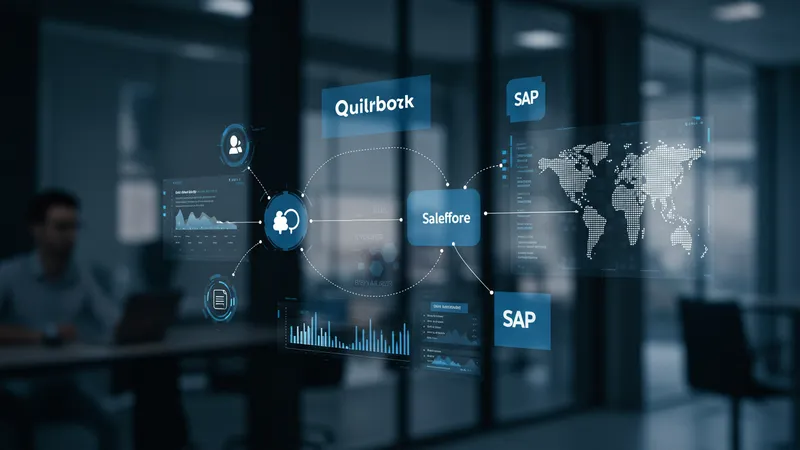
QuickBooks: Transforming Enterprise Accounting With Scalable Solutions
Integration with Enterprise Systems in the U.S.
A standout advantage of QuickBooks for U.S. enterprise accounting is its integration potential. Tools like the QuickBooks Direct Integrations Suite bridge the gap between financial management and wider technology ecosystems in American corporations. For example, integration with Salesforce enables seamless syncing of sales data, giving both financial and sales teams real-time insight into revenue streams and outstanding receivables.

Connecting QuickBooks to supply chain platforms, such as Shopify or SAP, further streamlines operations for enterprises operating on a national scale. Automated data transfers reduce manual entry, eliminate data discrepancies between departments, and enhance the accuracy of both inventory and financial reports. These integrations become mission-critical as U.S. enterprises grow and require real-time data across distributed teams and operations.
Another significant benefit is the reduction of workflow duplication. By leveraging direct application program interface (API) connections, American accounting departments can automate routine tasks such as payroll processing, procurement tracking, and expense categorization. This not only speeds up closing cycles but also frees up valuable staff time for higher-order analysis and decision-making.
The security protocols enforced by integrated QuickBooks deployments are also tailored for U.S. regulatory requirements. It enables companies to maintain compliance with standards like Sarbanes-Oxley and GAAP, automating audit trail creation and secure document storage through connected systems. As integration technologies advance, QuickBooks continues to set a benchmark for seamless, compliant interoperability in the U.S. enterprise space.